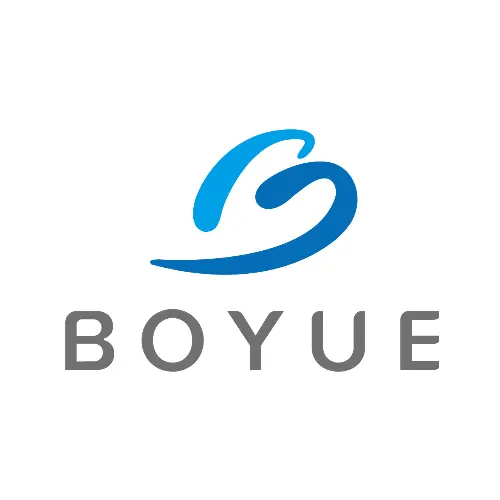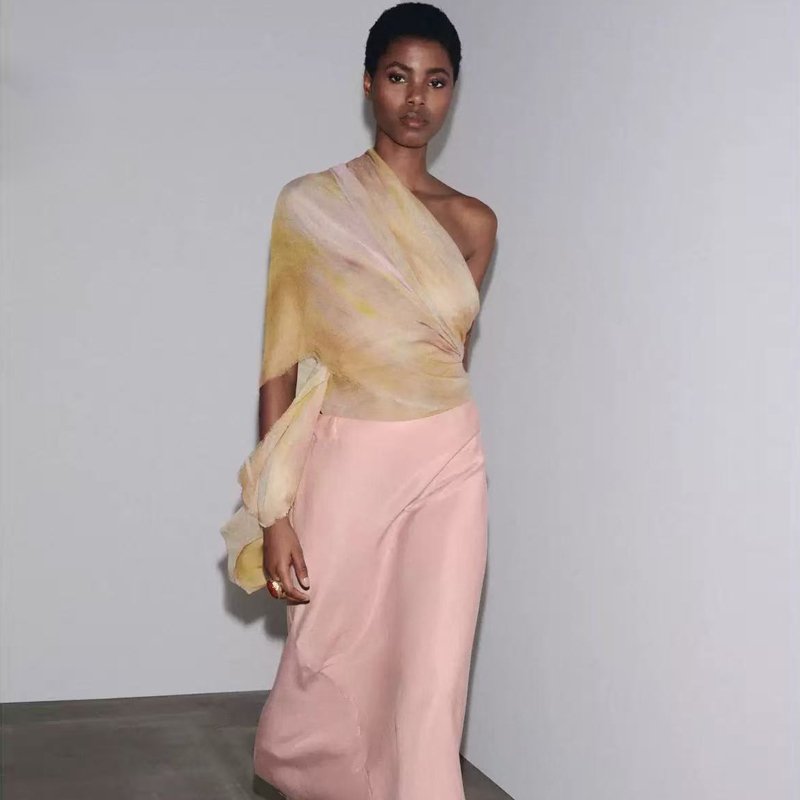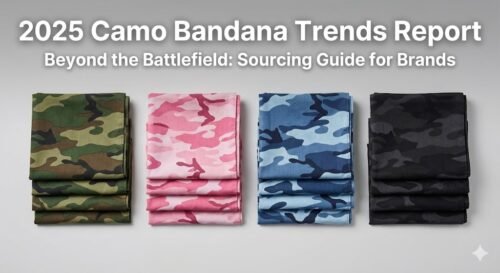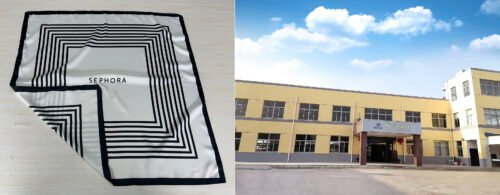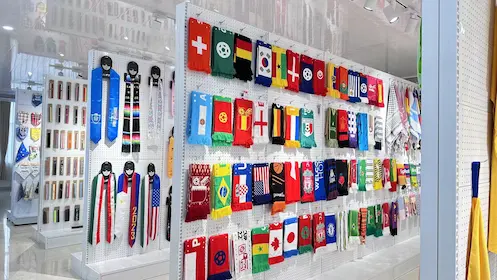Table of Contents
Toggle1. Overview of custom Scarves
What are custom scarves and why they are popular
custom scarves are personalized products with specific patterns, text or logos printed on them according to personal or corporate needs. They are popular because they can meet the needs of modern consumers for uniqueness and personalized expression.
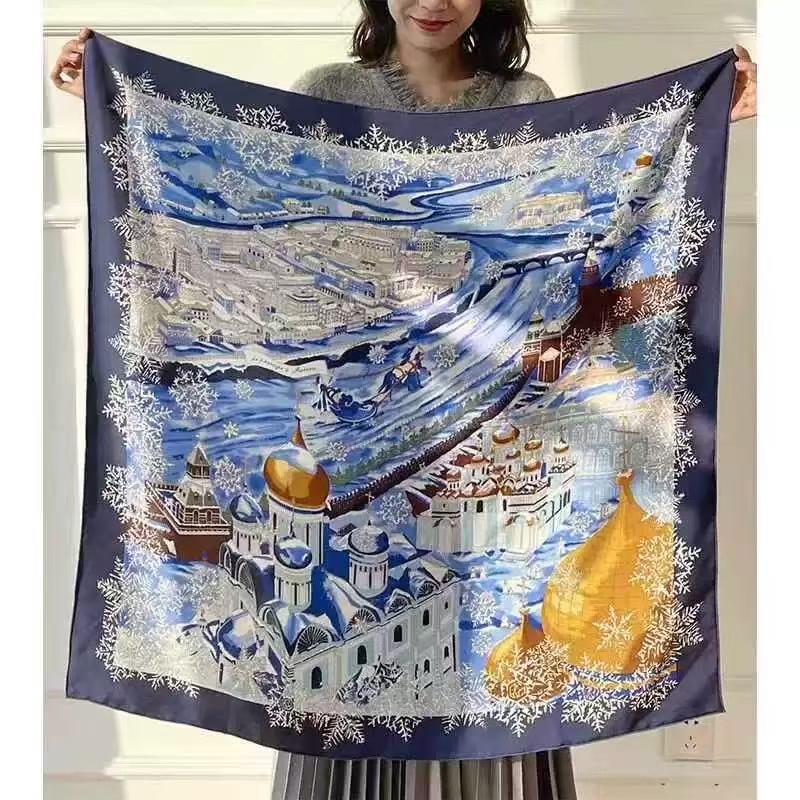
Advantages of customized scarves over finished scarves
Customized scarves have unique characteristics and can carry special emotional value. They are not only an ideal choice for personal style display, but also an effective carrier for corporate publicity and promotion. Compared with finished scarves, they are more commemorative and practical.
Market status and development trend of customized scarves
The current custom scarves market is growing rapidly, mainly used in the fields of personal customization, corporate gifts and souvenirs. In the future, more attention will be paid to environmentally friendly materials, digital design and fast delivery services, and the market scale will continue to expand.
2. Types of customized scarves
Personal photo customized scarves
Print personal photos, family photos or pet photos on scarves to make unique personal souvenirs, suitable for recording good memories and special moments.
Corporate logo and brand customized scarves
Business gifts with company logos, brand logos or slogans are used for corporate activities, employee benefits or customer gifts, effectively enhancing brand exposure and corporate image.
Letter embroidery and name customized scarves
Use embroidery technology to make personal initials or special words on scarves to show personalized style, often used for birthday gifts, graduation commemorations or personal collections.
Artistic pattern and design customized scarves
Customize unique artistic patterns, abstract designs or creative graphics according to customer needs to meet the personalized aesthetic needs of art lovers and fashion gurus.
Holiday theme and commemorative customized scarves
Limited edition scarves designed around specific festivals, celebrations or anniversaries, such as Christmas, Valentine’s Day, anniversaries, etc., have a strong festive atmosphere and commemorative significance.
3. Material and fabric selection
Silk
High-end luxury fabric, smooth and natural, breathable, with natural temperature control properties, suitable for making high-end customized scarves, often used in formal occasions and special souvenirs.
Polyester
Synthetic fiber material, strong wear resistance, easy to wash and dry quickly, bright colors, long-lasting and non-fading, affordable and cost-effective, suitable for mass customization and daily use.
Cotton
Natural fiber fabric, moisture absorption, breathable, comfortable and skin-friendly, soft and natural, environmentally friendly, healthy and biodegradable, suitable for wearing in all seasons and various occasions.
Satin
The surface is smooth and shiny, with a strong sense of drape, with a silk-like visual effect, light and soft texture, not easy to wrinkle, suitable for making customized scarves with a strong sense of fashion.
Chiffon
Light and transparent texture, elegant and agile, excellent breathability, smooth feel, strong color expression, suitable for wearing in spring and summer, creating a romantic and elegant visual effect.
Flax
Natural plant fiber fabric, moisture absorption and perspiration, good breathability, crisp texture, good antibacterial properties, suitable for making casual style customized scarves.
Bamboo fiber
Environmentally friendly recycled fiber material, strong natural antibacterial and deodorizing function, excellent moisture absorption and perspiration performance, soft and comfortable to the touch, suitable for people with sensitive skin.
4. Size and shape specifications
Standard scarf size specifications
Common standard sizes include 55cm*55cm, 70cm*70cm, 90×90cm, 100×100cm, 110×110cm square sizes, and 180×60cm, 190×70cm rectangular sizes to meet different wearing needs and usage scenarios.
Personalized size customization options
Supports customization of special sizes according to customer needs, with the smallest size of 30×30cm mini and the largest size of 200×200cm oversized, and can also customize specific length-to-width ratios.
Different shapes: rectangular, square, infinite loop
Rectangular scarves are suitable for traditional tying methods and business occasions; square scarves can be folded and worn in a variety of ways; the infinite loop style has two ends connected to form a ring shape, which is easy to wear and not easy to slip off.
The influence of width and length on wearing effect
The width affects the coverage area and warmth retention of the scarf. Narrow ones are delicate and elegant, while wide ones are elegant and fashionable. The length determines the diversity of tying methods. Short ones are suitable for simple tying methods, while long ones can create a rich sense of layering.
5. Design and printing technology
Digital printing technology
Using high-precision digital inkjet technology, it can achieve accurate restoration of complex patterns and gradient colors, suitable for photo-level images and delicate designs, with rich colors and high saturation.
Embroidery process selection
The pattern is embroidered on the fabric through a professional embroidery machine, which has the characteristics of strong three-dimensional sense and high-end texture, suitable for the exquisite presentation of logos, texts and simple patterns.
Heat transfer printing
The pattern is transferred to the fabric using hot pressing technology, with bright and lasting colors, suitable for mass production, high pattern clarity and good color fastness.
Screen printing technology
The traditional printing process, printing ink on the fabric through the screen, is suitable for simple patterns and large areas of color blocks, with relatively low cost and strong durability.
Color matching and quality control
Use a professional color management system to ensure that the color of the pattern is consistent with the design draft, establish strict quality inspection standards, and monitor the entire process from raw materials to finished products to ensure the printing quality of each scarf.
6. Applicable occasions for customized scarves
Corporate gifts and promotional purposes
Customized scarves with company logos and brand information are used as business gifts for customer maintenance, employee benefits, exhibition promotion and brand promotion to enhance corporate image and visibility.
Wedding and special event accessories
Customized theme scarves for special occasions such as weddings, birthday parties, anniversary celebrations, etc. as guest gifts or decorative items to add to the atmosphere and commemorative significance of the event.
Sports team and school group supplies
Customized scarves with team logos, school badges or slogans are used for sports events, campus activities and group gatherings to enhance team cohesion and sense of belonging.
Personal fashion matching items
Customized scarves with unique patterns, photos or artistic designs according to personal preferences as fashion accessories for daily wear, showing personal taste and unique style.
Memorial and mourning theme scarves
Make customized scarves printed with commemorative dates, photos of the deceased or commemorative words to commemorate important people, special events or express emotional sustenance, which have profound commemorative value.
VII. How to order custom scarves
Choose the right supplier or manufacturer
Choose a professional custom scarves manufacturer with experience, advanced equipment and good reputation according to the customization needs, and examine its production capacity, sample quality and after-sales service level.
Design preparation and artwork requirements
Prepare high-resolution design files to ensure pattern clarity and color accuracy, and understand the supplier’s specific requirements for file format, size and color mode.
Minimum order quantity requirements
Understand the minimum order quantity standards of different suppliers, which are generally between 50-100 pieces, and choose the appropriate cooperation plan according to actual needs.
Price factors and budget considerations
Comprehensively consider factors such as fabric cost, printing process, order quantity, design complexity, etc., formulate a reasonable budget plan and compare quotations from different suppliers.
Production cycle and delivery time
Confirm the production cycle after design confirmation, which is generally 7-21 days. Plan the order time in advance to ensure on-time delivery, and reserve sufficient time for important activities.
8. Quality standards and considerations
Fabric quality standards
Select high-quality fabrics that meet national textile safety standards to ensure that they are free of harmful substances, comfortable to the touch, and uniform in color.
Printing durability and color fastness
The printed pattern is required to have good washing fastness and sunlight fastness, and professional testing is required to ensure that it will not fade or fall off after long-term use.
Production process and edge treatment
Check whether the sewing process and edge treatment of the scarf are fine, ensure that the edges are flat and not off, and the overall workmanship is excellent.
Quality inspection and certification requirements
Suppliers are required to provide quality inspection reports and relevant certification certificates to ensure that the products meet industry standards and customer requirements.
IX. Care and maintenance tips
Cleaning methods for different materials
Dry cleaning is recommended for silk scarves, hand washing for cotton, and machine washing for polyester. Choose the appropriate cleaning method according to the characteristics of the fabric.
Correct storage suggestions
Avoid direct sunlight and humid environments, store flat or hang to maintain the shape and texture of the scarf.
Stain removal tips
Use corresponding cleaning methods for different types of stains, and deal with them in time to avoid stain penetration and solidification.
Long-term storage methods
Package with dust-proof bags, place moisture-proof agents, and ventilate and dry regularly to ensure that the scarf remains in good condition for a long time.
10. Custom scarves trends
Current design trends and hot topics
Simple geometric patterns, natural elements, abstract art and other design styles are popular, and personalized and environmental protection themes have become new trends.
Celebrity and Internet celebrity custom scarves styles
Influenced by fashion bloggers and celebrities, retro style, minimalism and bold color matching have become popular choices.
Seasonality and fashion trend influence
Design corresponding themes and colors according to the characteristics of different seasons of spring, summer, autumn and winter, and keep up with the changes in international fashion trends.
Development of new technologies for custom scarves production
Digital printing technology is constantly upgrading, the application of environmentally friendly materials is increasing, and the personalized customization platform is becoming more and more perfect.。
XI. Conclusion and suggestions
Summary of key points for choosing custom scarves
Consider factors such as fabric, design, craftsmanship and purpose, and choose the custom scarves solution that best suits your needs.
Suggestions for getting the best cost-effectiveness
Compare quotations and services from multiple suppliers, reasonably control the number of customizations, and choose suitable fabrics and craftsmanship to balance cost and quality.
Encourage exploration of personalized customization options
Encourage consumers to try customized scarves according to their personal preferences and special needs, and enjoy a unique personalized fashion experience.
